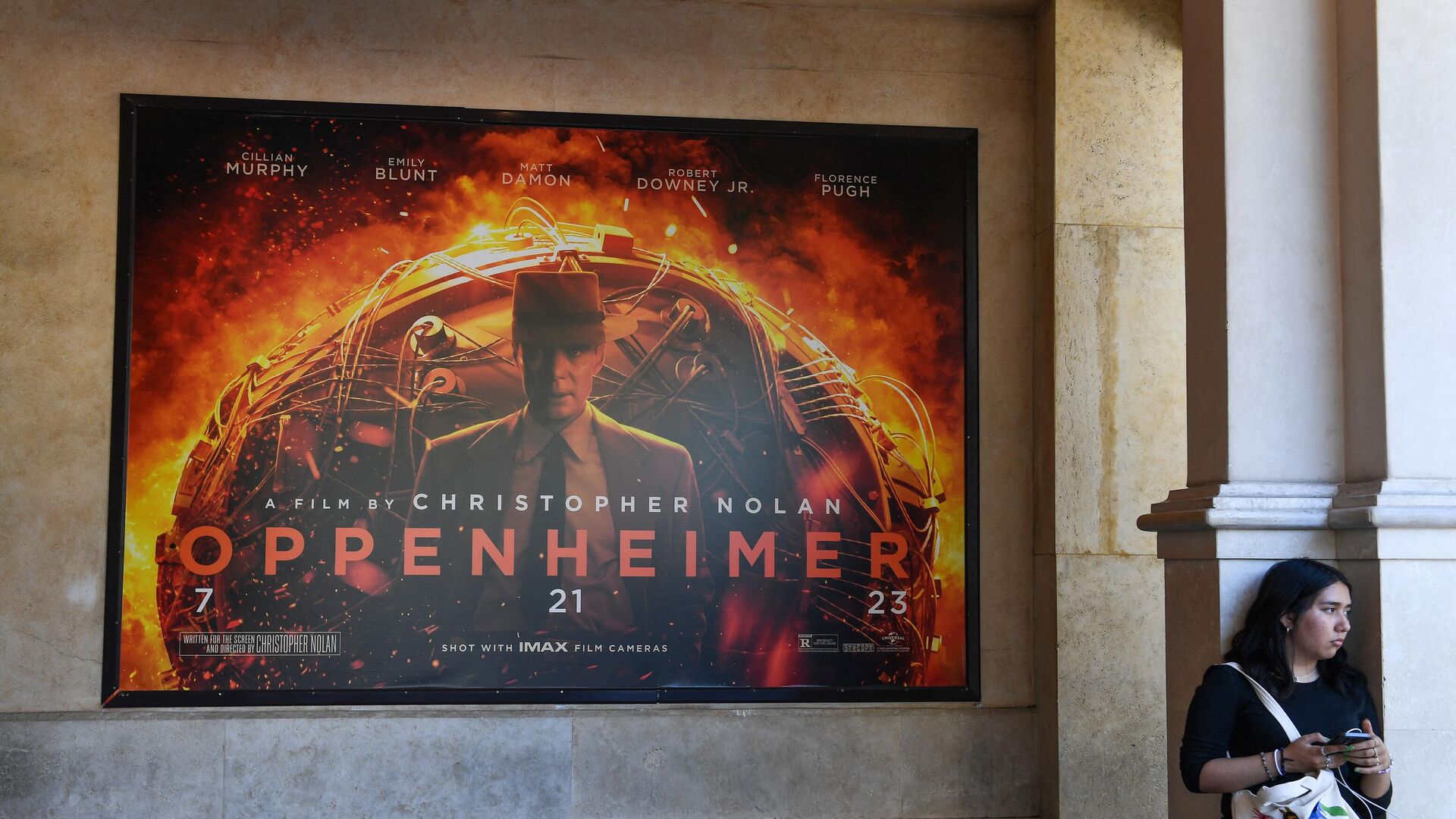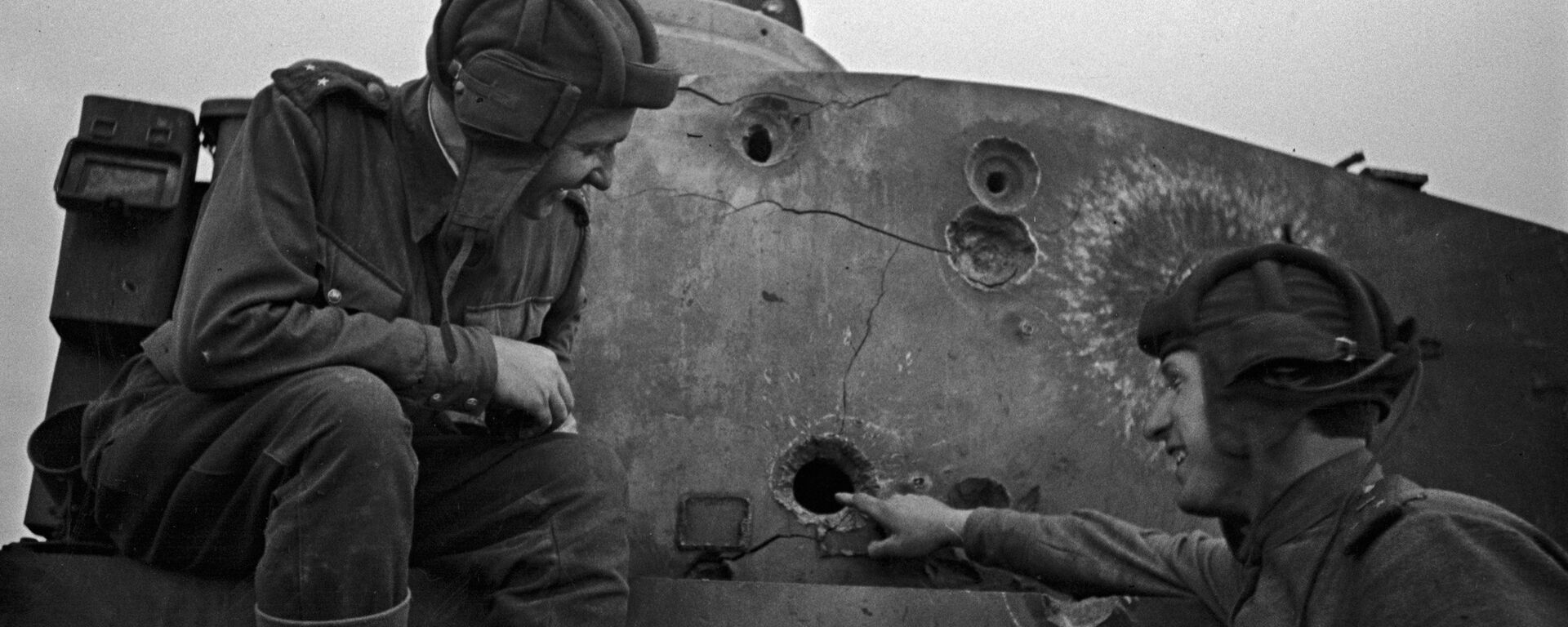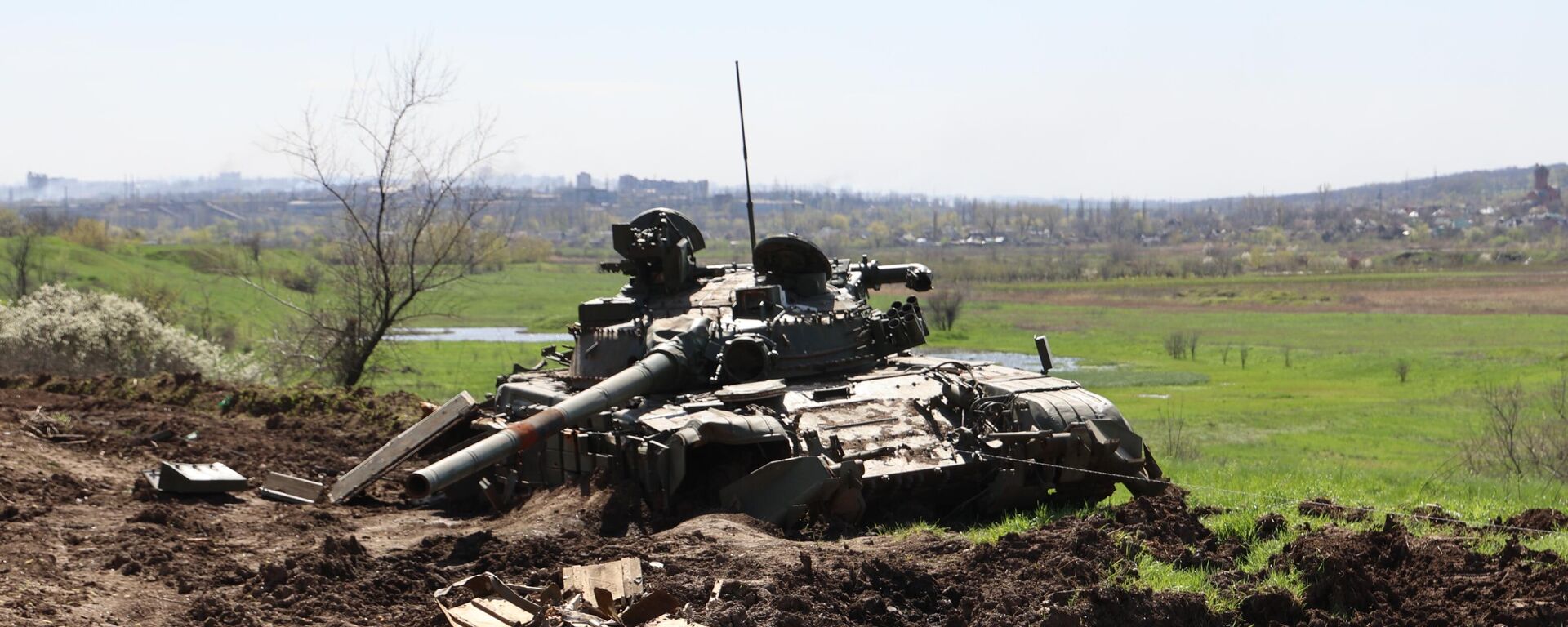https://sputniknews.in/20230729/what-india-and-the-rest-of-the-world-must-learn-from-nolans-oppenheimer-3271199.html
What India and The Rest of The World Must Learn From Nolan’s Oppenheimer
What India and The Rest of The World Must Learn From Nolan’s Oppenheimer
Sputnik India
Oppenheimer is the flavour of the season in India. It seems to have outshone Barbie, according to critics. Here in India, the Christopher Nolan flick appears to have an emphatic edge.
2023-07-29T16:28+0530
2023-07-29T16:28+0530
2023-07-29T16:40+0530
sputnik opinion
india
nuclear weapons
oppenheimer
artificial intelligence (ai)
nazi germany
world war ii
us
japan
arms race
https://cdn1.img.sputniknews.in/img/07e7/07/18/3165485_0:0:3110:1750_1920x0_80_0_0_3c82b6e212f9747ef690fa08de2eb26d.jpg
‘Oppenheimer’ is the flavour of the season in India. The movie, of course. It seems to have outshone Barbie, according to critics. Worldwide the popularity is somewhat 50-50. Here in India, the Christopher Nolan flick appears to have an emphatic edge.I wouldn’t want to get into the reason why. I would leave it to film critics.The nuclear thriller – which is also the biopic of the man considered the father of the nuclear bomb, J Robert Oppenheimer – has inspired discussions, most of which are around the role of the nuclear bomb in ensuring peace. The nuclear device is a deterrent and therefore saved us from third and fourth world wars, goes a line of argument, an old one indeed, but packaged differently by invoking current and potential geopolitical flashpoints.Others prefer to dwell at length on the great scientist himself, the political affiliations that made him an obvious odd choice in the US, in the age of McCarthyism, for heading the Manhattan project in Los Alamos, New Mexico, that in 1945 made the first atom bomb.The movie, based on the Oppenheimer biography titled American Prometheus by Kai Bird, spotlights multiple hot topics and shines a light on the race to build the bomb before Nazi Germany did. We all know that the Germans did not build one, but an experiment in 1938 in Germany gave enough indication that the Nazis may develop the bomb. The Manhattan Project, comprising mostly immigrant Jews from Germany and other countries who were displaced by Hitler’s lebensraum dream, was literally an outcome of a justified concern: that the world isn’t safe unless we build the atom bomb before the Germans do it.The film addresses various pressing issues but does not throw new light on any efforts on the part of the US to cover up their deliberate yet myopic military plans in the Pacific theatre of World War II using their newly acquired nuclear power.Yet, Oppenheimer by Nolan is a must-watch for multiple reasons. He is brave to have portrayed a man who in the years following the successful detonation of the atom bomb — and especially after the Soviets tested their nuclear bomb in 1949 — was persecuted and denigrated by the same defence establishment that benefited tremendously from his hard work. These Americans were upset with him because he was against nuclear arms proliferation. How would they then ‘handle’ such a man to ensure adequate defence budgets for future war preparations and development of the hydrogen bomb, the thermonuclear device, or the super bomb as it was called at that time?Destroying his reputation was the easy way out. Many people were involved in that witch hunt, especially the defence establishment and the Federal Bureau of Investigation (FBI) led by the notoriously hawkish J Edgar Hoover.Nolan deserves praise for portraying what most Hollywood directors would not relish putting the spotlight on: certain aspects of post-War American history marked by anti-communist paranoia and reckless militarisation accompanied by relentless victimisation of people over their freedom of choice, freedom to dissent and unionise, and their freedom to call out the government for their excesses. The world’s oldest democracy wasn’t much of a sanctuary of democratic rights, after all. But then everything could be justified in the name of national security, the wars, and the killings and coups in sovereign nations. The creation of puppet governments by bumping off democratically elected leaders was the American way of protecting its interests, especially those of its big corporations. The excuse, invariably, was national security. The trend hasn’t stopped.Nolan’s movie is also about some stark omissions.Nolan isn’t interested in Oppenheimer’s shortcomings either, although he seems to have made this movie as his likely magnum opus, if you factor in the stellar cast, research, artistic perfection, and so on.We all know that Oppenheimer is the father of the atom bomb, but not its inventor, a status that should go to his illustrious predecessors in new physics of the 1920s, most importantly Leo Szilard, the Hungarian-German Jewish physicist who won the patent for nuclear chain reaction as early as 1936. It was he who drafted the 1939 letter that Albert Einstein (whose 1905 equation E = mc² gave birth to the atom bomb and which is widely regarded as the one that explains how a nuclear reactor works) and others, including him, sent to US President Roosevelt urging him to launch a project to make an atom bomb in the US before the Germans made it. What drove Szilard and others to do so was the 1938 discovery in Germany of nuclear fission (where a nucleus of an atom splits into lighter nuclei). Roosevelt okayed the plan, which later became the Manhattan Project Oppenheimer was destined to head.Incidentally, Oppenheimer was never opposed to the idea of dropping two atomic bombs on Hiroshima and Nagasaki without warning. Szilard, who had headed the metallurgy arm of the Manhattan Project in Chicago, on the other hand, wrote a petition, which was signed by 69 other scientists, to then US President Harry S. Truman in 1945 stating that Japan, which was the sole country among the Axis Powers that was yet to surrender, must be warned about the use of the atom bomb on their territory, meaning they must be given a last chance to surrender before the bombs are dropped. Oppenheimer opposed Szilard’s plan. Besides, Oppenheimer also knew that the atom bombs would be dropped in a large area and that civilians would be the main targets, not military installations. He may not have decided on the spots to be bombed, but he knew the bombs would be used on cities, resulting in large-scale destruction, loss of human life, and life-long injuries. Apparently, Oppenheimer till death held the view that dropping the atomic bombs without warning wasn’t a mistake.That the bombs were dropped at a time when the Allied Powers were still contemplating the announcement of a conventional war in Japan in order to force them to surrender is an irony and a historical tragedy. But the Americans have refused to change the narrative notwithstanding raw evidence that suggests they had an option to warn the Japanese.History, it appears, has a penchant for repeating itself. Now, the discussions that need to be initiated at this point in time, thanks to various learnings from the nuclear race that Oppenheimer and the likes of the great physicist Niels Bohr and others had warned us against, is on the judicious use of artificial intelligence (AI). AI is the new weapon of mass destruction unless its proliferation isn’t contained or regulated. Although it is early days, champions of AI themselves have realised the need for framing public policies and laws to regulate the use of AI. They are now into generative AI as well as the development of Artificial General Intelligence (AGI), which is expected to be like humans and act without prompts, an idea that was till just years or months ago in the realm of illusion.What is more pragmatic than expecting Nolan to do what no American filmmaker would dare to do — expose the empire’s dirty secrets — is to use the opportunity to dig deep into Oppenheimer’s concerns about the nuclear arms race and to apply them in the context of AI and its growth. What is in order is the integration of AI for humane use. Otherwise, the world will witness wars of a kind far more destructive than a nuclear one. The genie cannot be bottled once it has escaped.
https://sputniknews.in/20230712/largest-tank-battle-in-history-80-years-since-battle-of-prokhorovka-2962646.html
https://sputniknews.in/20230728/ukrainian-infantry-blews-up-own-mines-in-failed-attempt-to-attack-russians-3260989.html
india
us
japan
Sputnik India
feedback.hindi@sputniknews.com
+74956456601
MIA „Rossiya Segodnya“
2023
News
en_IN
Sputnik India
feedback.hindi@sputniknews.com
+74956456601
MIA „Rossiya Segodnya“
Sputnik India
feedback.hindi@sputniknews.com
+74956456601
MIA „Rossiya Segodnya“
nolan’s oppenheimer, oppenheimer, nolan’s oppenheimer in india, oppenheimer in india, nuclear arms race, father of the nuclear bomb, atom bomb, atom bomb in nazi germany, american prometheus, nuclear arms proliferation, indians of new mexico, use of artificial intelligence, use of atom bombs, atom bombs during wwii
nolan’s oppenheimer, oppenheimer, nolan’s oppenheimer in india, oppenheimer in india, nuclear arms race, father of the nuclear bomb, atom bomb, atom bomb in nazi germany, american prometheus, nuclear arms proliferation, indians of new mexico, use of artificial intelligence, use of atom bombs, atom bombs during wwii
What India and The Rest of The World Must Learn From Nolan’s Oppenheimer
16:28 29.07.2023 (Updated: 16:40 29.07.2023) It is time to extend the concerns of Robert Oppenheimer about a nuclear arms race to the world of Artificial Intelligence.
‘Oppenheimer’ is the flavour of the season in India. The movie, of course. It seems to have outshone Barbie, according to critics. Worldwide the popularity is somewhat 50-50. Here in India, the Christopher Nolan flick appears to have an emphatic edge.
I wouldn’t want to get into the reason why. I would leave it to film critics.
The nuclear thriller – which is also the biopic of the man considered the father of the
nuclear bomb, J Robert Oppenheimer – has inspired discussions, most of which are around the role of the nuclear bomb in ensuring peace. The nuclear device is a deterrent and therefore saved us from third and fourth world wars, goes a line of argument, an old one indeed, but packaged differently by invoking current and potential geopolitical flashpoints.
Others prefer to dwell at length on the great scientist himself, the political affiliations that made him an obvious odd choice in the US, in the age of McCarthyism, for heading the Manhattan project in Los Alamos, New Mexico, that in 1945 made the first atom bomb.
The movie, based on the Oppenheimer biography titled
American Prometheus by Kai Bird, spotlights multiple hot topics and shines a light on the race to build the bomb before Nazi Germany did. We all know that the Germans did not build one, but an experiment in 1938 in Germany gave enough indication that the Nazis
may develop the bomb. The Manhattan Project, comprising mostly immigrant Jews from
Germany and other countries who were displaced by Hitler’s lebensraum dream, was literally an outcome of a justified concern: that the world isn’t safe unless we build the
atom bomb before the Germans do it.
Finally, the Soviet Union helped crush the might of the Nazis by inflicting the grandest losses (the largest chunk of German casualties were caused by the Red Army) and in 1945, Germany surrendered shortly after the Russians stormed the streets of Berlin. Hitler and his partner committed suicide.
The film addresses various pressing issues but does not throw new light on any efforts on the part of the US to cover up their deliberate yet myopic military plans in the Pacific theatre of World War II using their newly acquired nuclear power.
Yet,
Oppenheimer by Nolan is a must-watch for multiple reasons. He is brave to have portrayed a man who in the years following the successful detonation of the atom bomb — and especially after the Soviets tested their nuclear bomb in 1949 — was persecuted and denigrated by the same defence establishment that benefited tremendously from his hard work. These Americans were upset with him because he was against
nuclear arms proliferation. How would they then ‘handle’ such a man to ensure adequate defence budgets for future war preparations and development of the hydrogen bomb, the thermonuclear device, or the super bomb as it was called at that time?
Destroying his reputation was the easy way out. Many people were involved in that witch hunt, especially the defence establishment and the Federal Bureau of Investigation (FBI) led by the notoriously hawkish J Edgar Hoover.
Nolan deserves praise for portraying what most Hollywood directors would not relish putting the spotlight on: certain aspects of post-War American history marked by anti-communist paranoia and reckless militarisation accompanied by relentless victimisation of people over their freedom of choice, freedom to dissent and unionise, and their freedom to call out the government for their excesses. The world’s oldest democracy wasn’t much of a sanctuary of democratic rights, after all. But then everything could be justified in the name of national security, the wars, and the killings and coups in sovereign nations. The creation of puppet governments by bumping off democratically elected leaders was the
American way of protecting its interests, especially those of its big corporations. The excuse, invariably, was national security. The trend hasn’t stopped.
Nolan’s movie is also about some stark omissions.
It doesn’t delve much into the Trinity Test and the health hazards it caused among the Indians of New Mexico who had lived within the 50km radius of the site of the test. They were expendables, weren’t they?
Nolan isn’t interested in Oppenheimer’s shortcomings either, although he seems to have made this movie as his likely magnum opus, if you factor in the stellar cast, research, artistic perfection, and so on.
We all know that Oppenheimer is the father of the atom bomb, but not its inventor, a status that should go to his illustrious predecessors in new physics of the 1920s, most importantly
Leo Szilard, the Hungarian-German Jewish physicist who won the patent for nuclear chain reaction as early as 1936. It was he who drafted the 1939 letter that Albert Einstein (whose 1905 equation E = mc² gave birth to the atom bomb and which is widely regarded as the one that explains how a nuclear reactor works) and others, including him, sent to
US President Roosevelt urging him to launch a project to make an atom bomb in the US before the Germans made it. What drove Szilard and others to do so was the 1938 discovery in Germany of nuclear fission (where a nucleus of an atom splits into lighter nuclei). Roosevelt okayed the plan, which later became the Manhattan Project Oppenheimer was destined to head.
Incidentally, Oppenheimer was never opposed to the idea of dropping two atomic bombs on
Hiroshima and Nagasaki without warning. Szilard, who had headed the metallurgy arm of the Manhattan Project in Chicago, on the other hand, wrote a petition, which was signed by 69 other scientists, to then US President Harry S. Truman in 1945 stating that Japan, which was the sole country among the Axis Powers that was yet to surrender, must be warned about the use of the atom bomb on their territory, meaning they must be given a last chance to surrender before the bombs are dropped. Oppenheimer opposed Szilard’s plan. Besides, Oppenheimer also knew that the atom bombs would be dropped in a large area and that civilians would be the main targets, not military installations. He may not have decided on the spots to be bombed, but he knew the bombs would be used on cities, resulting in large-scale destruction, loss of human life, and life-long injuries. Apparently, Oppenheimer till death held the view that dropping the atomic bombs without warning wasn’t a mistake.
That the bombs were dropped at a time when the Allied Powers were still contemplating the announcement of a conventional war in
Japan in order to force them to surrender is an irony and a historical tragedy. But the Americans have refused to change the narrative notwithstanding raw evidence that suggests they had an option to warn the Japanese.
The act led to a nuclear race and later the Cold War. Oppenheimer was truly against such a race and renewed investment in super bombs. He wanted an international forum to regulate the development of nuclear power for military use. He saw nuclear arms only as a deterrent.
History, it appears, has a penchant for repeating itself. Now, the discussions that need to be initiated at this point in time, thanks to various learnings from the nuclear race that Oppenheimer and the likes of the great physicist Niels Bohr and others had warned us against, is on the judicious use of
artificial intelligence (AI). AI is the new weapon of mass destruction unless its proliferation isn’t contained or regulated. Although it is early days, champions of AI themselves have realised the need for framing public policies and laws to regulate the use of AI. They are now into generative AI as well as the development of Artificial General Intelligence (AGI), which is expected to be like humans and act without prompts, an idea that was till just years or months ago in the realm of illusion.
What is more pragmatic than expecting Nolan to do what no American filmmaker would dare to do — expose the empire’s dirty secrets — is to use the opportunity to dig deep into Oppenheimer’s concerns about the nuclear arms race and to apply them in the context of AI and its growth. What is in order is the integration of AI for humane use. Otherwise, the world will witness wars of a kind far more destructive than a nuclear one. The genie cannot be bottled once it has escaped.



